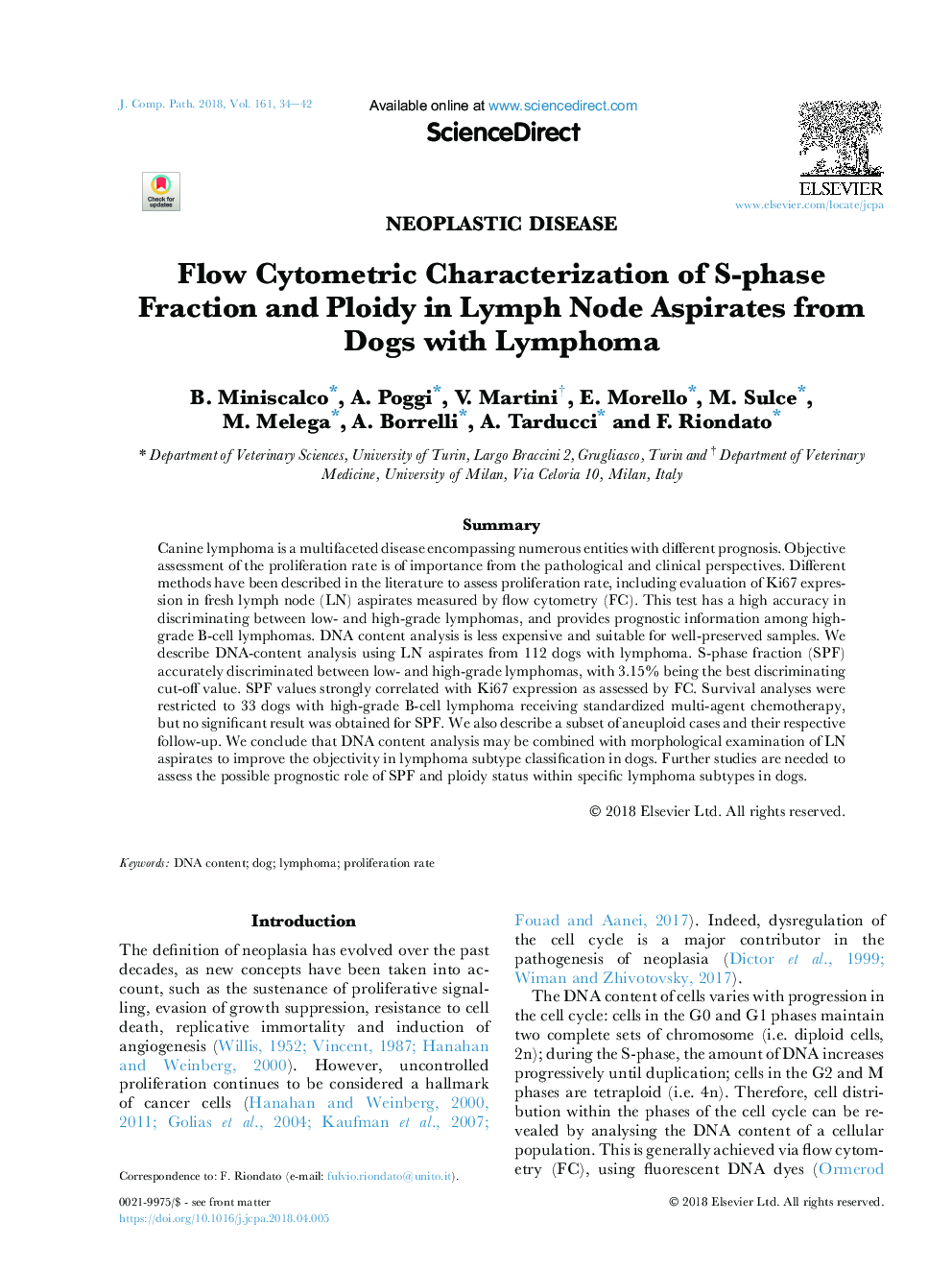| Article ID | Journal | Published Year | Pages | File Type |
|---|---|---|---|---|
| 8500407 | Journal of Comparative Pathology | 2018 | 9 Pages |
Abstract
Canine lymphoma is a multifaceted disease encompassing numerous entities with different prognosis. Objective assessment of the proliferation rate is of importance from the pathological and clinical perspectives. Different methods have been described in the literature to assess proliferation rate, including evaluation of Ki67 expression in fresh lymph node (LN) aspirates measured by flow cytometry (FC). This test has a high accuracy in discriminating between low- and high-grade lymphomas, and provides prognostic information among high-grade B-cell lymphomas. DNA content analysis is less expensive and suitable for well-preserved samples. We describe DNA-content analysis using LN aspirates from 112 dogs with lymphoma. S-phase fraction (SPF) accurately discriminated between low- and high-grade lymphomas, with 3.15% being the best discriminating cut-off value. SPF values strongly correlated with Ki67 expression as assessed by FC. Survival analyses were restricted to 33 dogs with high-grade B-cell lymphoma receiving standardized multi-agent chemotherapy, but no significant result was obtained for SPF. We also describe a subset of aneuploid cases and their respective follow-up. We conclude that DNA content analysis may be combined with morphological examination of LN aspirates to improve the objectivity in lymphoma subtype classification in dogs. Further studies are needed to assess the possible prognostic role of SPF and ploidy status within specific lymphoma subtypes in dogs.
Related Topics
Life Sciences
Agricultural and Biological Sciences
Animal Science and Zoology
Authors
B. Miniscalco, A. Poggi, V. Martini, E. Morello, M. Sulce, M. Melega, A. Borrelli, A. Tarducci, F. Riondato,
